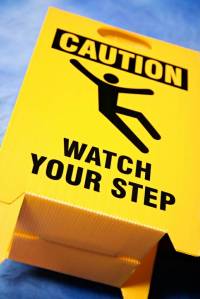“…inspection reports obtained by the newspaper showed the apartments did not have properly maintained fire escapes, exit lights, fire extinguishers or smoke alarms…”
The lawsuit filed by the families of Gerardo Reyes Perez and Humberto Hernandez Vanegas, who both died in the apartment building fire, was dismissed with prejudice, according to online court  records. A dismissal with prejudice means the lawsuit cannot be refiled against building owner Corazon Peterson, also known as Corazon Moen, and her insurance companies.
records. A dismissal with prejudice means the lawsuit cannot be refiled against building owner Corazon Peterson, also known as Corazon Moen, and her insurance companies.
A second wrongful death lawsuit has been dismissed against the owner of the Independence Hotel Tap that burned in February 2009, killing three men. The suit was dismissed after a “minor†settlement.
But the amount of the settlement is unknown. Judge John Damon approved an order to seal documents related to the case, including the settlement paperwork, and Moen as well as attorneys representing both sides of the suit did not respond to calls for comment.
The Hotel Tap building failed its last three fire inspections prior to the blaze that also killed Ronald Stuart Beck Sr. His family also filed a wrongful death suit, which was dismissed in June.
Moen denied the failed inspections when questioned by the Winona Daily News last year, saying smoke alarms and fire extinguishers were in the building at the time of the fire. But inspection reports obtained by the newspaper showed the apartments did not have properly maintained fire escapes, exit lights, fire extinguishers or smoke alarms.
The families of Perez and Vanegas contended in their lawsuit that none of the issues were addressed at the time of the February blaze, saying the building was in “general disrepair.â€
The suit specifically cites anguish experienced by Perez’s brother Jose Reyes Perez and sister Blanca Morales. The pair were “at the scene of the blaze at its pinnacle and could only watch as the building burnt uncontrollably, and knowing their brother was inside, unable to escape,†the suit states.
Moen in her answer filed in March acknowledged the failed inspections but said the problems were fixed before the fire.
For more:Â http://www.winonadailynews.com/news/local/article_34815248-ada3-11df-bd70-001cc4c002e0.html









